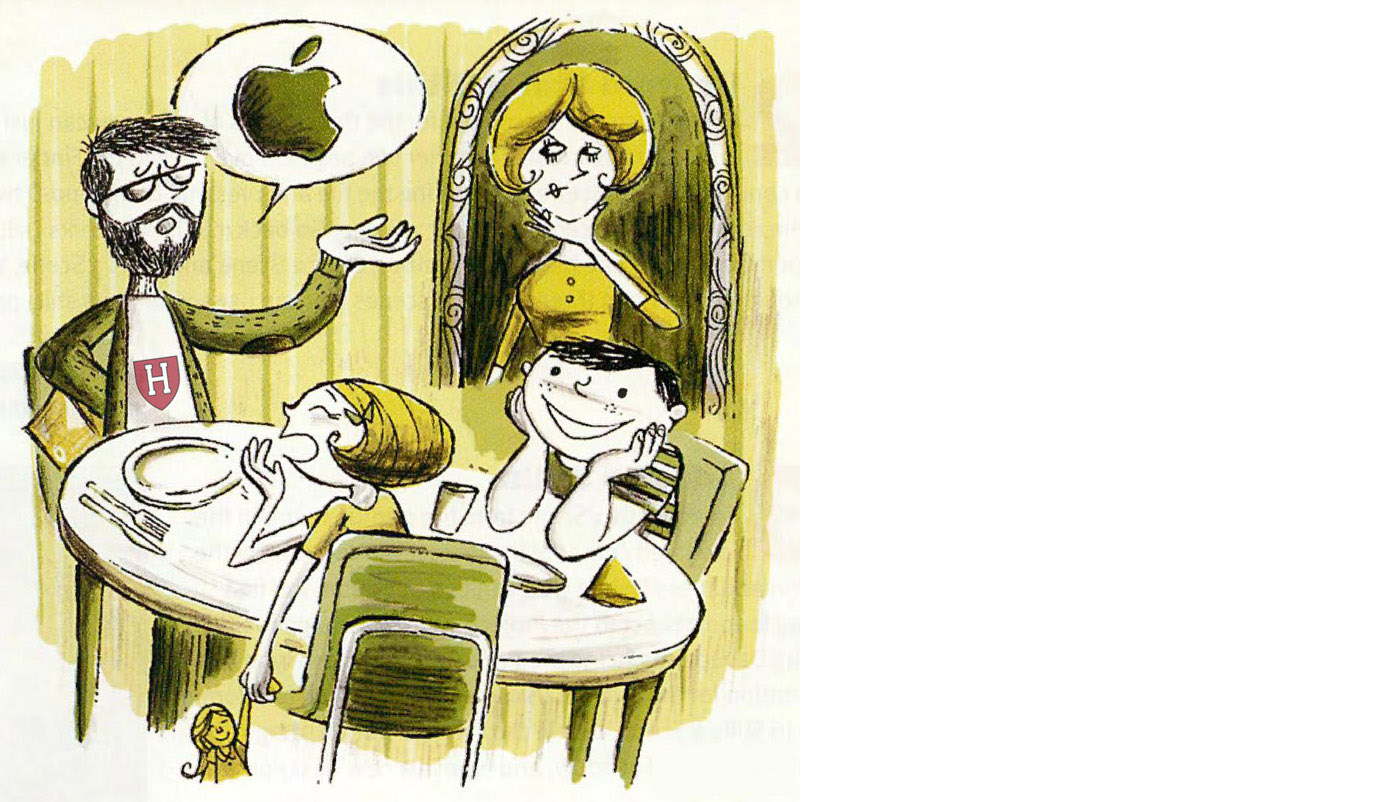How Apple went contrary to the five generally accepted PR-norms, but kept its good name
- Transfer
In January 2010, Apple faced a huge crisis, which promised a sharp decline in reputation. A few days after the launch of the iPhone 4 (the most successful Apple product ever launched), it was rumored that with a certain method of capturing a mobile phone (with the so-called “deadly capture”), its signal strength decreases. Trickles of complaints turned into a large-scale avalanche. For a few weeks, Apple made fun of everyone who could. But by mid-July, the criticism had ceased. And not just stopped, but rather well forgotten.
How did Apple achieve such seemingly impossible PR? - Breaking down 5 key “rules” that were previously considered to be immutable in PR. Jobs and the company did not follow any of these rules, but at the same time remained on top.

1. Apologize and take full responsibility

Jobs did not. The first complaint about the weakening of the antenna signal, he responded to the client as follows: “The weakening of the antenna performance occurs on any mobile phone, when it is picked up, stronger or weaker, depending on how you hold the phone and where the antenna is located. Such is the harsh truth of life of any mobile phone. If you encounter this on your iPhone 4, avoid taking it by the bottom left corner. Or just use one of the many available covers. "
2. Do not feed through the media those expectations of the public that do not plan to meet

- Just a couple of weeks after Jobs’s letter, Apple announced a press conference in mid-July - to make an appeal about Antennagate.
- Of course, this news has generated corresponding expectations from the public. The main expectation was that Apple would take responsibility and express its readiness to replace the “faulty” iPhone models.
- Nothing like this happened at the press conference. Instead, Apple reiterated its response, while very clearly: “We are not perfect. Mobile phones are not perfect. We all know that. But we want to make our users happy. ”
3. If you are planning to distribute gifts - state it as soon as possible.

- Apple has found that the iPhone case somewhat alleviates the problem of weakening the antenna signal. At the end of the aforementioned press conference, Apple representatives offered free cases to users who had this problem.
- As a result, Apple was again criticized for not making this offer at the beginning of the press conference. After all, "you should get the maximum benefit from your decision to distribute gifts."
- However, Apple's PR experts did not consider such a distribution an essential proposition for their consumers. Covers at the press conference were distributed just for a tick in the “consumer report”.
4. Avoid comparisons with competitors.

- Comparison with competitors may trigger the consumer to give preference to competitor products. On the contrary, Apple showed video clips of competitors' mobile phones, and even with their previous model (iPhone 3GS), which showed weakening of the antenna signal.
- Apple continued to publish videos about competitors' mobiles for another month - offering its customers to pick up the mobiles of competitors and feel the same problem with their own hands.
- Then, when Apple's competitors predictably went to the press with their denials, their words sounded very unconvincing. Where have they been all these weeks, and where was their outrage before ?! With one stroke, Apple convinced one and all that this antenna behavior was not new.
- The competitors were silent at first, because they wanted to let Apple fall from the pedestal of an industrial giant; and when they saw that this did not happen - they tried to take the initiative in their hands, but it was already too late.
5. Keep unpopular details of the production process secret

- The emerging problem with the antenna is probably well known to all who are engaged in the production of mobile phones. Typically, manufacturers are not inclined to tell the public about such problems - it is not profitable for them.
- But Apple was forced to do this, and spoke about the problem with the antenna publicly; stated that she was aware of this problem, and hoped to move forward in solving it in subsequent models.
- Apple took the brunt of this crisis and turned it into a competitive advantage. The problem with the antenna has led to the fact that consumers have a new expectation, and the idea that Apple is "running ahead of the pack." For consumers, this transparency inspires confidence that Apple is trustworthy.

So, in the situation with Antennagate, - Apple violated all five immutable rules of PR, which earned the righteous anger of conservative public relations specialists. However, Apple has achieved the desired result. Any competitor to Apple could have done the same thing, but none of them decided to do it. As a result, the competitors were trapped.
- Joshua Gans, PhD (Stanford).How Apple Broke the PR Rules – And Got Away With It // Harvard Business Review (Digital). 2011.
- Картинки взяты из журналов «Mac Addict» и «MacUser».
